Introduction
Selecting the perfect baby monitor camera is essential for ensuring your child's safety and peace of mind for parents. With various options available on the market, making the right choice can be challenging. In this guide, we'll provide practical tips and factors to consider when picking a child monitor camera for your family.
Video Quality Matters
When selecting a child monitor camera, prioritize video quality. You'll want a camera that provides clear, high-resolution images. Look for at least 720p or 1080p resolution for a sharp view of your baby. Crisp images help you monitor your child's activities effectively, even in low-light conditions.
Night Vision Capability
Babies often wake up during the night, so choose a camera with night vision capability. This feature ensures you can see your child clearly, even in complete darkness. Check for the range of night vision, as some cameras offer better coverage than others.
Two-Way Communication
Two-way communication is an invaluable feature that allows you to soothe your baby from a distance. Look for a monitor with a built-in microphone and speaker, enabling you to talk to your child or sing a lullaby to calm them down.
Wi-Fi or Dedicated Connection
Decide whether you prefer a Wi-Fi-connected camera or one with a dedicated connection. Wi-Fi monitors offer flexibility and remote access through smartphones, but they might be more vulnerable to hacking. Dedicated connection cameras provide added security, ensuring your baby's privacy.
Mobile App Integration
Many baby monitor cameras come with mobile apps that make monitoring easier. Check if the camera you choose offers a user-friendly app for your smartphone or tablet. These apps often provide features like notifications, remote control, and recording capabilities.
Pan and Tilt Features
For more control over the camera's view, consider models with pan and tilt features. These allow you to adjust the camera's angle and direction remotely. This feature comes in handy when your baby moves around their crib or room.
Temperature and Humidity Monitoring
A baby monitor with temperature and humidity sensors can help you maintain a comfortable environment for your child. It's important to ensure the room isn't too hot or too cold, and proper humidity levels can prevent discomfort.
Range and Signal Quality
Consider the range of your baby monitor camera. Depending on your home's size, you may need a camera with a long signal range. Additionally, ensure the signal quality remains strong, especially if there are thick walls or obstacles between the camera and the parent unit.
Security Features
Your baby's safety and privacy are paramount. Choose a camera with advanced security features, such as encryption and password protection, to prevent unauthorized access to the feed.
Additional Features
Finally, consider any extra features that may enhance your monitoring experience. Some monitors offer lullabies, temperature alerts, or the ability to connect multiple cameras for monitoring multiple children or rooms.
Conclusion
Selecting the right baby monitor camera is an important decision for parents. By prioritizing video quality, night vision, two-way communication, connectivity, and considering additional features, you can make a well-informed choice. Always prioritize your baby's safety, comfort, and your peace of mind when choosing a baby monitor camera for your family.
Shopping Now
-
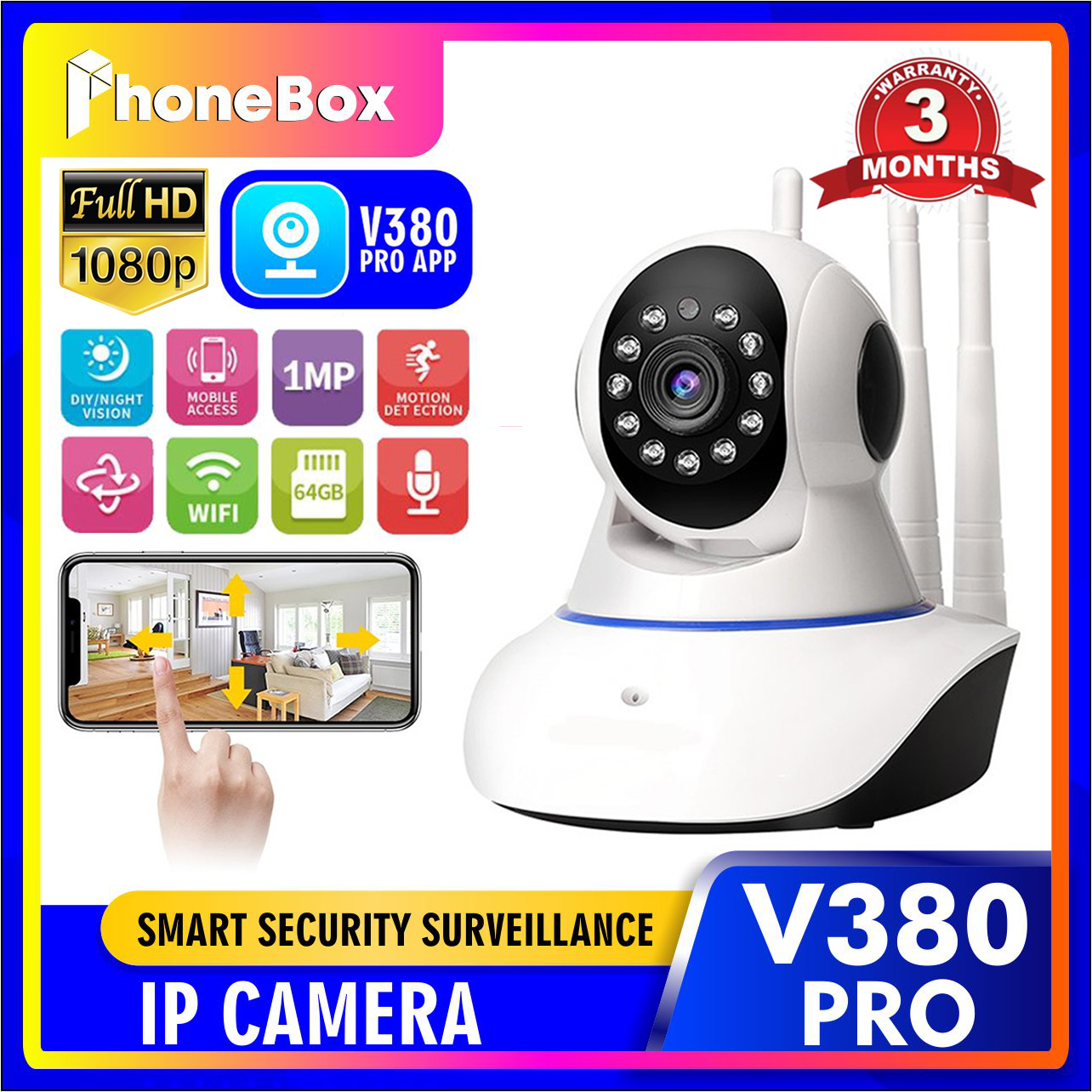
V380 | MINI V380 | Q16S Smart HD 1080P P2P Night Vision IP Camera Connect to Cellphone Wireless security with 3 antenna Baby Monitor ip cam CCTV Easy to Install IP Camera
Price: 463.66/
1399.0 -
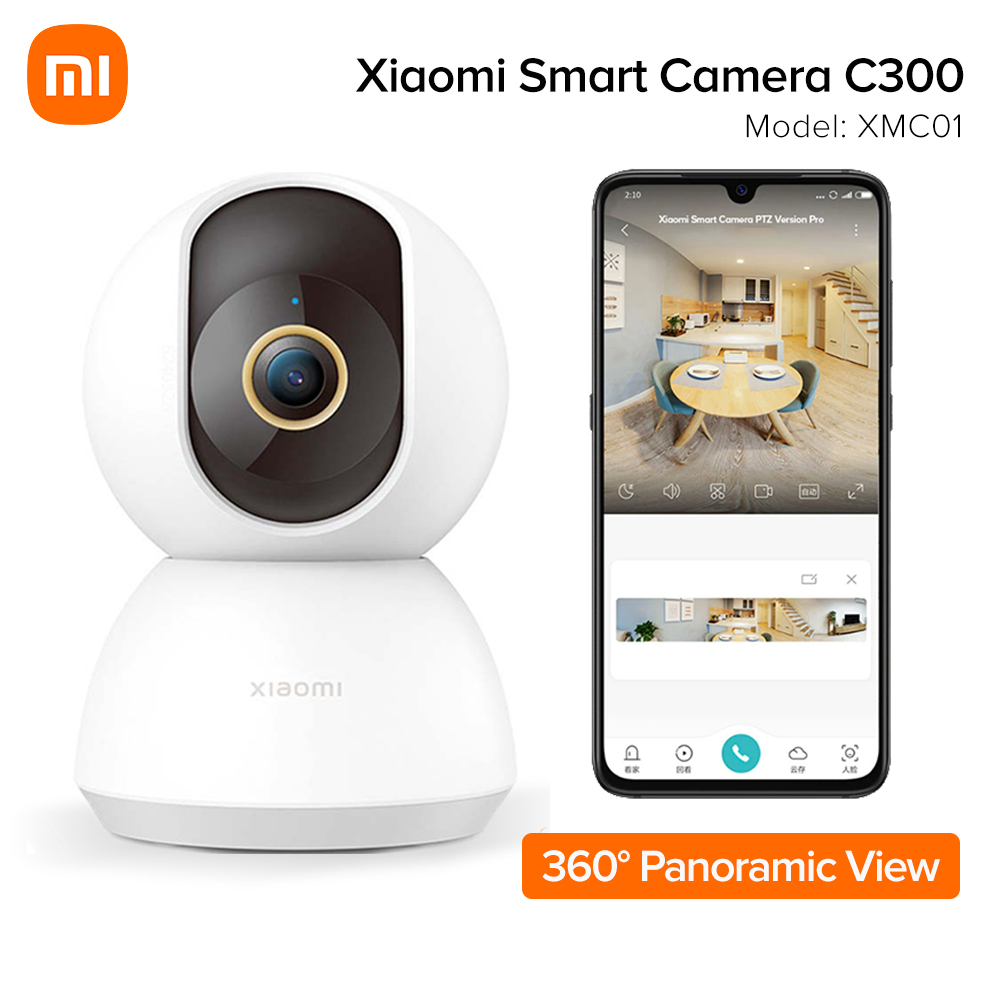
xiaomi cctv camera 360 HD 2k c300 cctv camera connect cellphone baby monitor camera and audio intercom cctv camera wifi connect 360 ip security cameras
Price: 1849.0/
3700.0 -
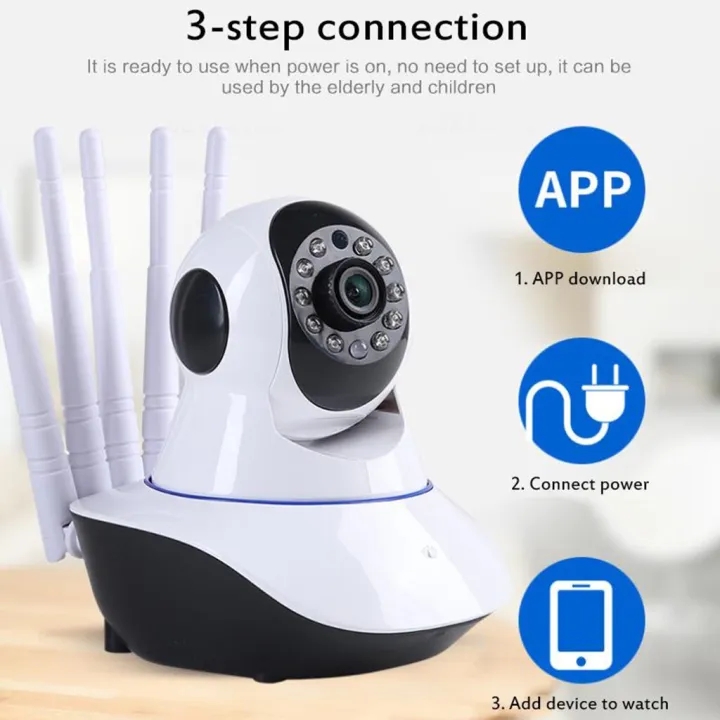
cctv camera with voice connect to cellphone wireless baby camera monitoring baby audio monitors baby monitor indoor camera and audio baby monitor with camera wireless 1080p cctv wifi wireless ip secur
Price: 989.0/
1289.0 -
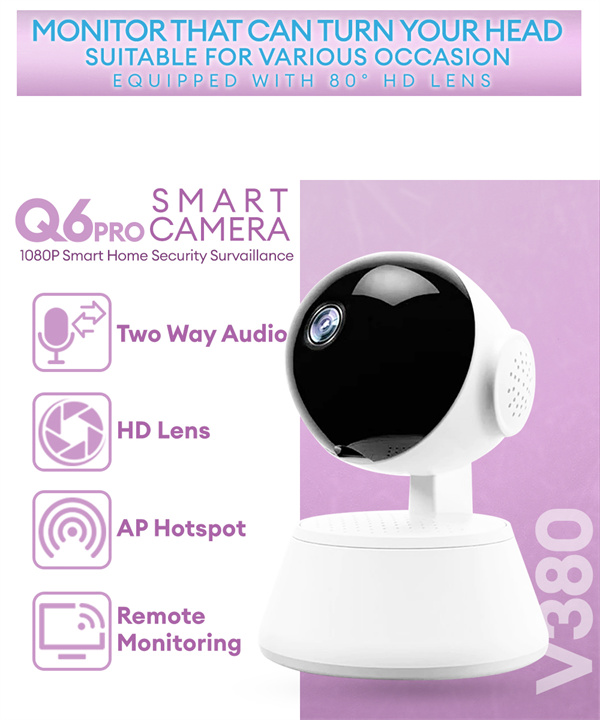
V380 PRO cctv camera connect cellphone Q6 pro cctv camera wifi Smart Home Camera App 1080P Auto Tracking Security Protection Indoor Wireless Camer Detection Two-way Audio IP Camera HD Auto Tracking Ni
Price: 649.0/
1299.0 -
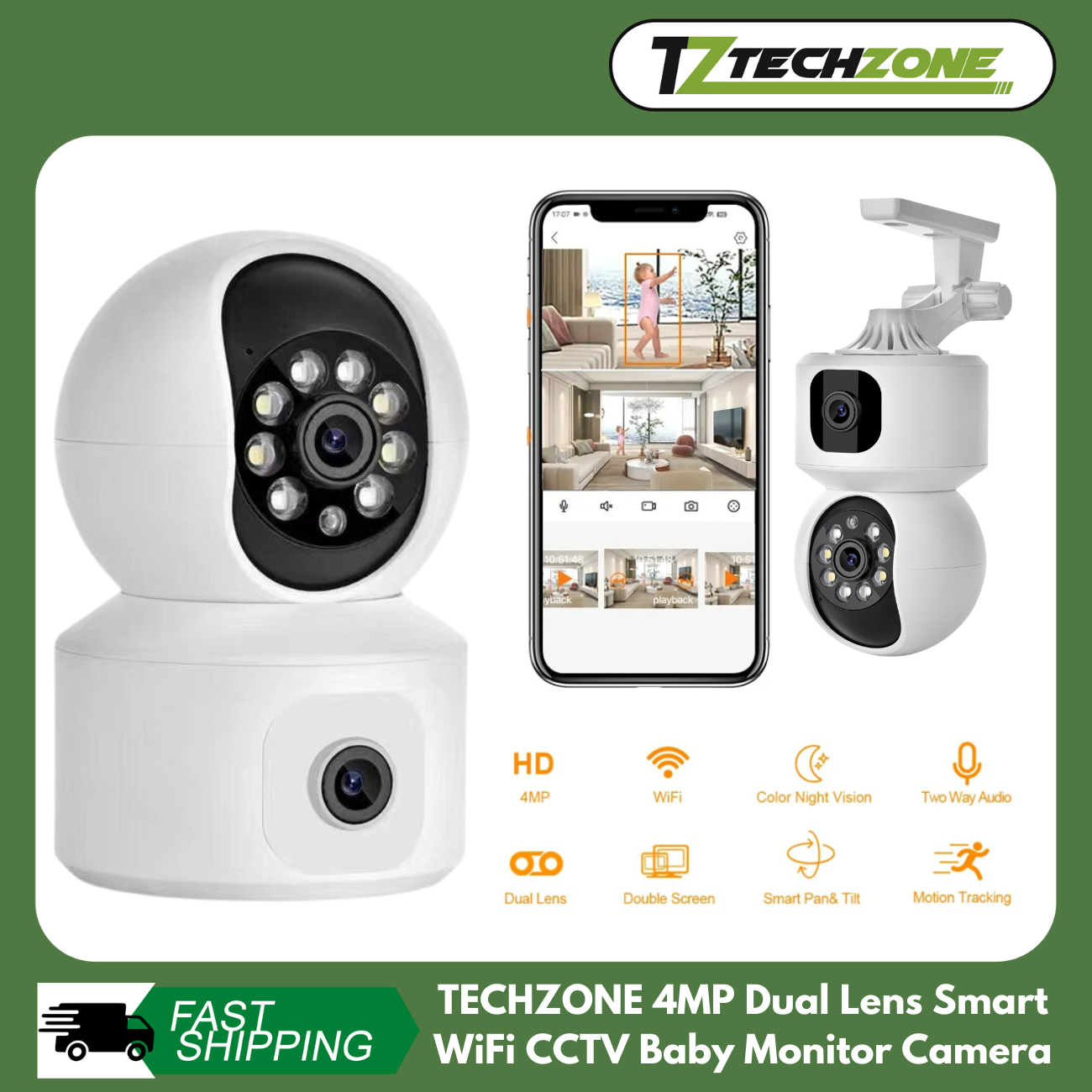
TECHZONE 4MP Dual Lens Smart WiFi CCTV Baby Monitor Camera Night Vision AI Auto Tracking Wireless PTZ IP Camera
Price: 730.0/
1600.0 -
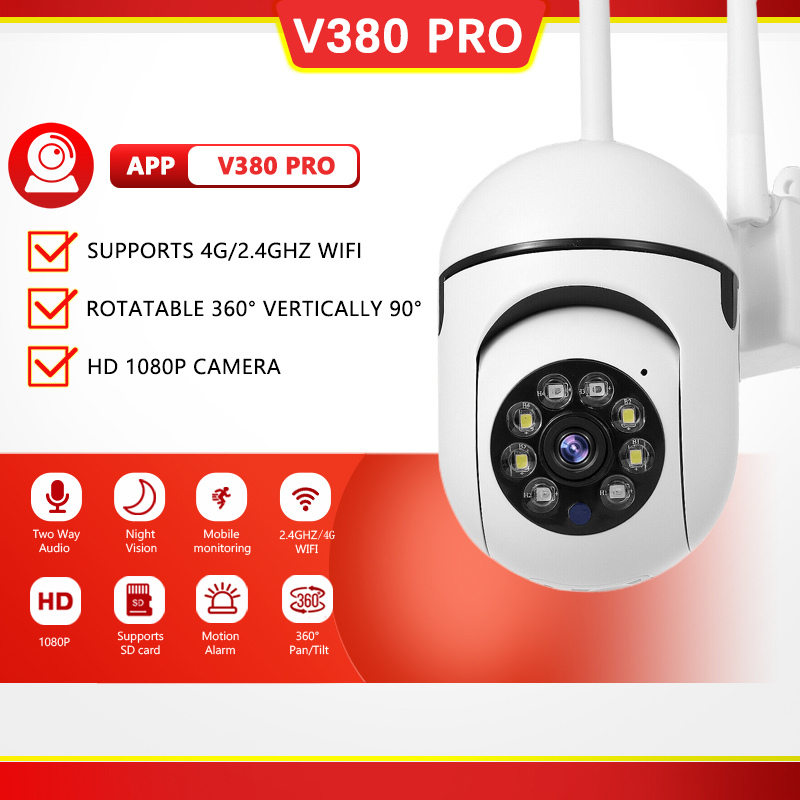
V380 PRO 3 years warranty AntennasHD CCTV camera connect cellphone can be rotated 360° alarm wireless wifi night vision IP security Baby Monitor Two Way Audio
Price: 880.85/
1347.0 -

Hikvision Q1 2MP HD Night Vision Network Pan & Tilt Wireless Wi-Fi IP Camera, Baby & Kids Camera Monitor with Connect to cellphone, Built-in Mic & Speaker Home Security Camera (DS-2CV2Q21FD-IW)
Price: 1881.35/
4180.0 -
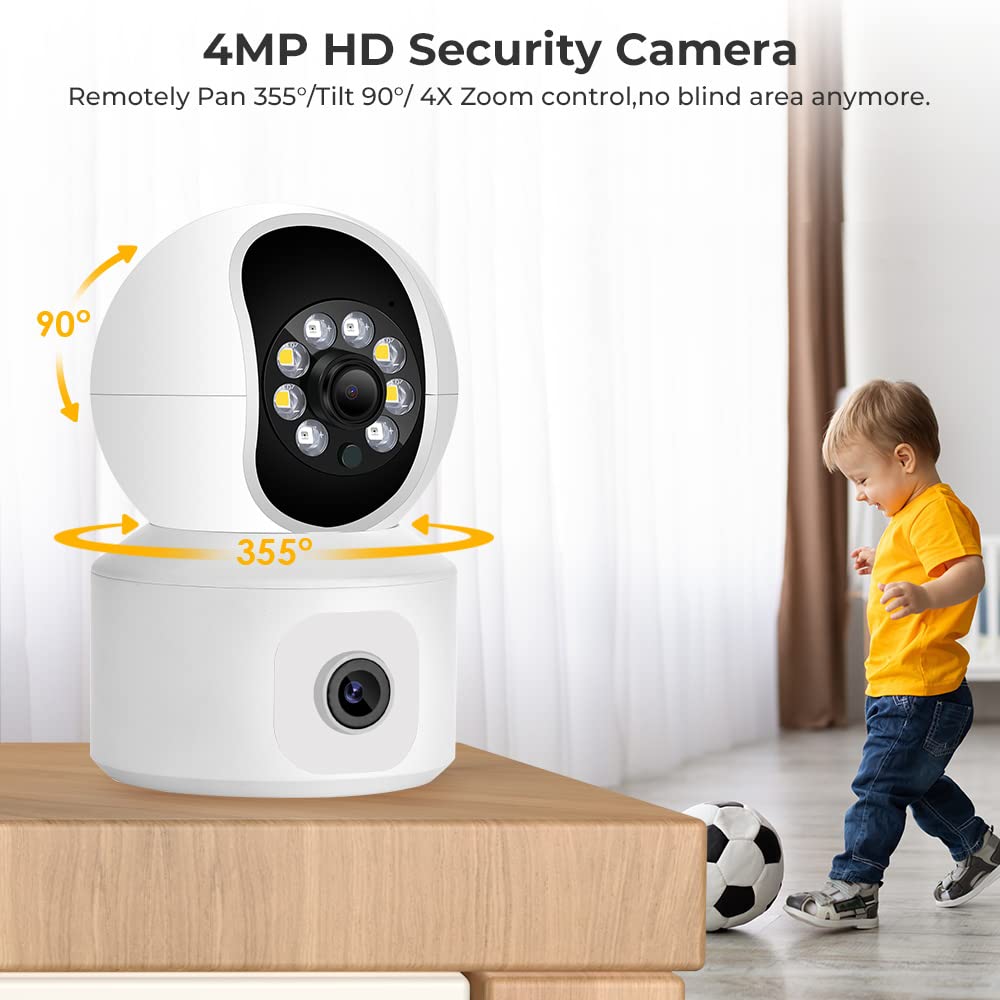
4MP Dual Lens Smart WiFi CCTV Baby Monitor Camera Night Vision AI Auto Tracking Wireless PTZ IP Camera
Price: 730.0/
1600.0
Copyright © MyECoupons 2023